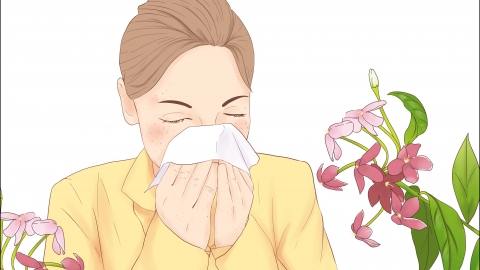How to relieve allergies
Allergy relief requires a combination of avoiding triggers and symptomatic management, which can generally be achieved by staying away from allergen-exposed environments, performing gentle localized care, adjusting diet to aid recovery, applying topical anti-inflammatory and antipruritic agents, and taking oral antihistamines. If in doubt, it is advisable to seek medical advice promptly. Detailed explanations are as follows:

1. Avoid allergen-exposed environments: Immediately leave environments that may trigger allergies, such as outdoor areas with high pollen concentrations, rooms heavily contaminated with dust mites, or spaces containing animal dander. Change clothes that may have come into contact with allergens and rinse exposed skin with clean water to reduce ongoing allergen stimulation.
2. Perform gentle localized care: When experiencing skin allergies, gently cleanse the affected area with lukewarm water, avoiding hot water soaks or vigorous rubbing. For dry areas, apply fragrance-free moisturizers to maintain the integrity of the skin barrier. If swelling occurs, apply a cold compress using a damp towel for about 10 minutes to alleviate discomfort.
3. Adjust diet to support recovery: Temporarily avoid foods prone to triggering allergies—such as spicy foods, seafood, and mangoes—to reduce the body’s allergic burden. Increase intake of fresh fruits and vegetables rich in vitamins, and drink plenty of water to promote metabolism and help eliminate allergens more quickly.
4. Use topical anti-inflammatory and antipruritic agents: For itchy or red and swollen skin, apply calamine lotion to soothe itching and reduce inflammation, or use mild corticosteroid creams containing desonide. For sensitive areas such as the face, choose gentle formulations and apply 2–3 times daily, avoiding prolonged or extensive use.
5. Take oral antihistamines: When allergy symptoms are significant, take medications such as loratadine tablets or cetirizine hydrochloride tablets. These drugs inhibit the release of allergic mediators and help relieve various symptoms including skin itching and sneezing. Follow dosage instructions on the label or as directed by a healthcare provider.
During the relief process, monitor changes in symptoms closely. Seek immediate medical attention if severe reactions occur, such as difficulty breathing, laryngeal edema, or widespread rashes. It is helpful to keep a daily record of situations and substances encountered during allergic episodes to identify specific allergens and implement long-term avoidance strategies. Individuals with allergic predispositions should always carry emergency medications to minimize risks from sudden allergic reactions.






